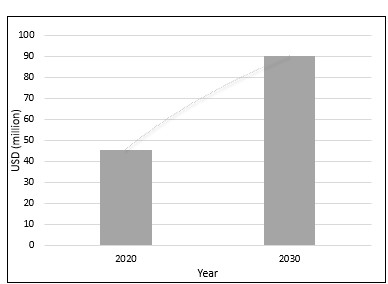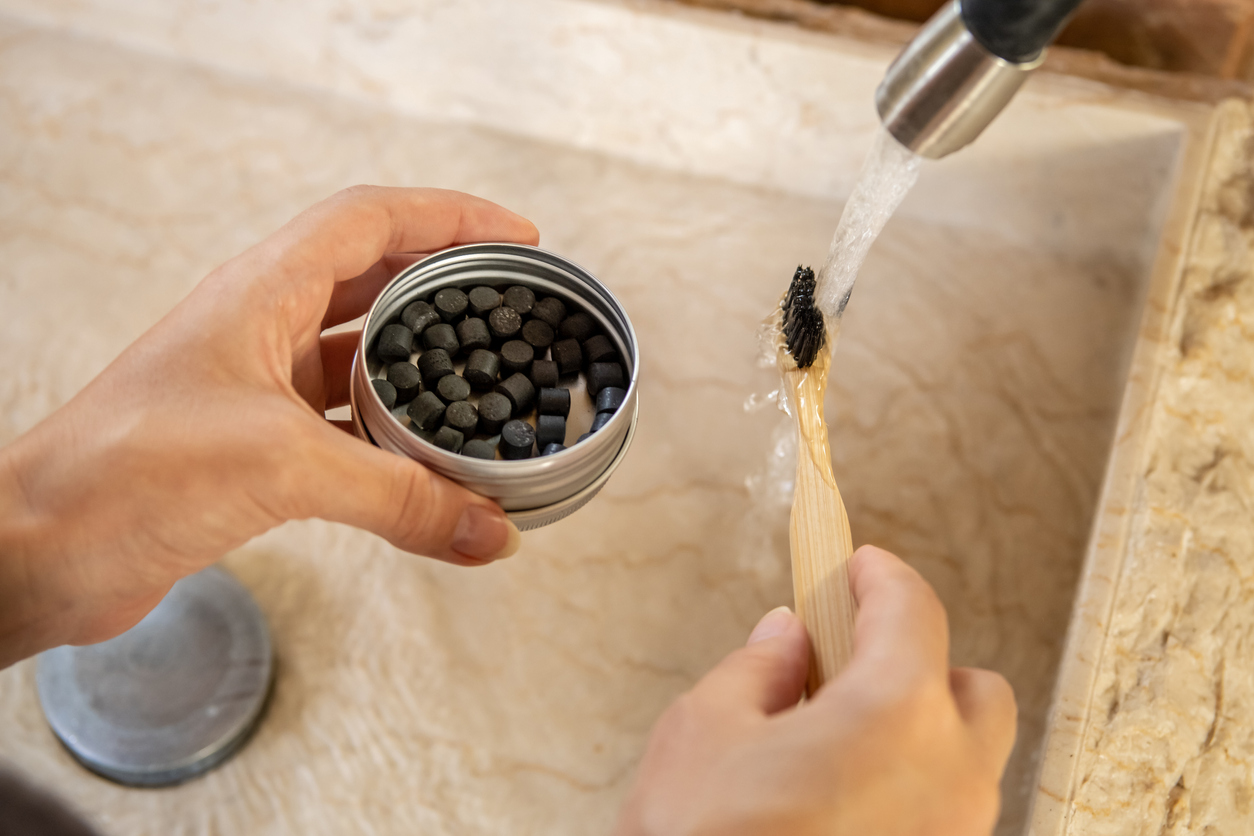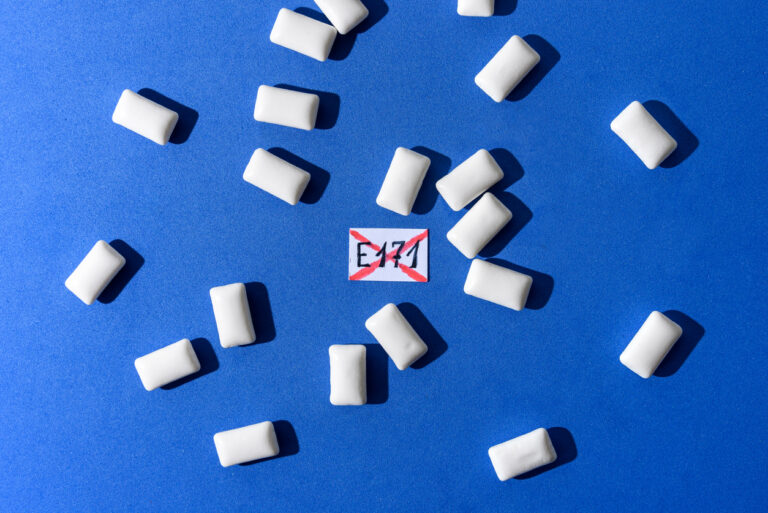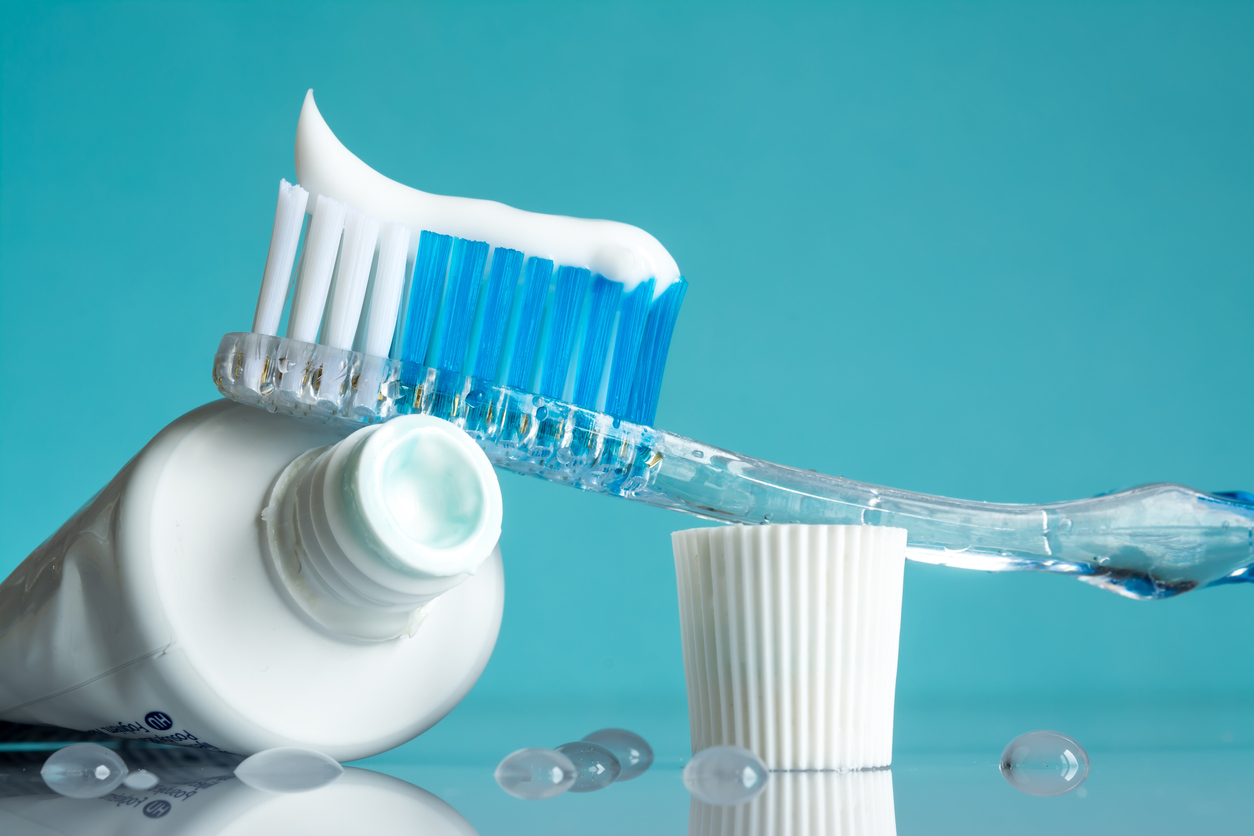Next Gen Oral Care – Toothpaste Tablets
Toothpaste, whether in gel or paste form, actively eliminates plaque, a sticky film of bacteria and food particles that continuously accumulate on the surfaces of teeth. Conventional toothpaste uses several chemically derived substances that take longer to degrade. The emptied toothpaste tubes end up in landfills, which aids in the environmental crisis. Due to the increasing awareness of health and the environment among people, sustainable and clean-label personal care products such as chewable toothpaste tablets are gaining more importance.
Chewable toothpaste tablets are waterless, powdered toothpaste compressed into a tablet form. These tablets comprise surfactants that reduce surface tension and perform well in contact with saliva. It has also proven to be very effective in reducing the micro-adhesion of bacteria. Like conventional kinds of toothpaste, toothpaste tablets come in fluoride-containing free forms. It comes in various flavors, such as tea-tree oil, mint, etc.
Chewable Toothpaste Tablet
Chewable toothpaste pills offer a bite-sized option that allows for easy chewing and saliva mixing to achieve a paste consistency. Xylitol, calcium carbonate, sodium bicarbonate, and derivatives of tartaric acid are the key ingredients of toothpaste tablets, waterless formulation. These toothpaste tablets are available in fluoride-containing and fluoride-free forms. The requirement for preservatives is also less in toothpaste tablets.
Steps in using these tablets:
- Chewing: Put the tablet between your teeth and crush, chew for a few seconds.
- Brushing: Toothbrush bristles are wetted and brush for about 2 minutes.
- Rinse and spit.
Mechanism & Benefits
When a tablet is popped and chewed, the powdered formulation mixes with saliva, forming a paste. The rate of dissolution of the tablet increases upon contact with saliva.
It also contains an abrasive agent in sufficient amounts to remove debris from the teeth’ surface and mechanically debride plaque.
- Natural Ingredients: Powerful cleaning is provided by plant-based ingredients, such as xylitol, sodium bicarbonate, etc.
- Saves Water: Manufacturing conventional toothpaste tubes requires a lot of water. In contrast, these tablets are water-free products, so minimal water usage is necessary during manufacturing.
- Convenient to Carry Around: While traveling with conventional toothpaste, there is a constant fear of spilling due to the squishing of the tube. But tablet form has made overall travel carefree. Also, the reduced bulkiness of the packaging saves up a lot of space for other essentials.
- Low Preservative: The ingredients in toothpaste tablets undergo compression into long-lasting tablets, requiring fewer preservatives and offering a more sustainable option.
- Eco-friendly: Unlike conventional ones that use aluminum-plastic composite tubes, these tablets offer scope for 100% plastic-free or biodegradable packaging.
Various Companies
In 2020, the toothpaste tablet market was valued at USD 45.6 million and was estimated to reach USD 90.3 million by 2030 with a CAGR of 7.3%.

Many companies have started working on toothpaste tablets. Exemplary companies are:
Unpaste: Unpaste tooth tabs use cellulose to gently clean teeth, minimizing the surface area where bacteria can adhere. Less plaque and tartar accumulation leads to healthier teeth and gums. A clinical trial discovered that Unpaste tooth tabs drastically reduced the quantity of plaque after just 14 days of treatment.
Bite: Bite offers a wide range of products and mainly uses natural ingredients. It has launched a product named “Fresh Mint Toothpaste Bite,” which consists of nano-hydroxyapatite blended with clean, vegan-friendly ingredients.
Huppy: Huppy tablets incorporate secure ingredients such as sodium bicarbonate, aloe vera, and peppermint oil. They are packaged sustainably. Also, because these bites contain xylitol and nano-hydroxyapatite, they can aid in the restoration of enamel and eradicate dangerous germs.
Weldental: Chewtab gentle whitening toothpaste tablets are free from SLS and fluoride. They use baking soda as a whitening agent without damaging teeth’s enamel.
More Companies
Colgate: Colgate’s plastic-free toothpaste in a glass container, the Toothpaste Tablets, is an excellent option for those who care about the environment. It is liquid-free, so one can take the tablets with them wherever they go and get cavity protection from bite-sized toothpaste bits.
Parla: Headquartered in London, Parla has launched eco-friendly toothpaste tabs. Parla Original and Parla Pro are the two varieties of oral care: plastic and animal cruelty-free. These tablets contain naturally occurring substances, such as a mild foaming agent derived from coconuts, mint flavor, hydroxyapatite, potassium citrate, and vitamins. It helps whiten teeth and removes stains, lasts for a long time, remineralizes teeth while brushing, potassium citrate protects from sensitivity and strengthens the immune system.
Lush: It is a Korean company offering various beauty, personal care, and cosmetic products. Its toothpaste tablets are environmentally friendly, vegan-based, and cruelty-free.
Happy Tabs: Established in 2019, Happy Tabs focuses on manufacturing sustainable products without artificial dyes, fillers, heavy chemicals, etc. The company uses natural ingredients for oral care products and compostable packaging. A range of toothpaste tablets consists of mint flavor and charcoal, which effectively fights against caries and plaque.
Geo Organics: Headquartered in the United Kingdom, Geo Organics mainly focuses on developing sustainable and effective oral care products. Mineral toothpaste tablets contain natural ingredients like activated charcoal, eucalyptus, and peppermint, providing better mouth freshness and cleaning.
Conclusion
Being a nascent field, more research is being done to develop and produce this tablet. Till now, research in the domain has been limited on the efficacy of tablets. Having no preservatives, these tablets are readily acceptable to consumers. In addition, the higher cost of these tablets will be overcome in the near future by evolving production techniques, making them a perfect replacement for regular toothpaste. Furthermore, increasing consumers’ shift from liquid toothpaste to chewable toothpaste tablets will reduce environmental pollution.


